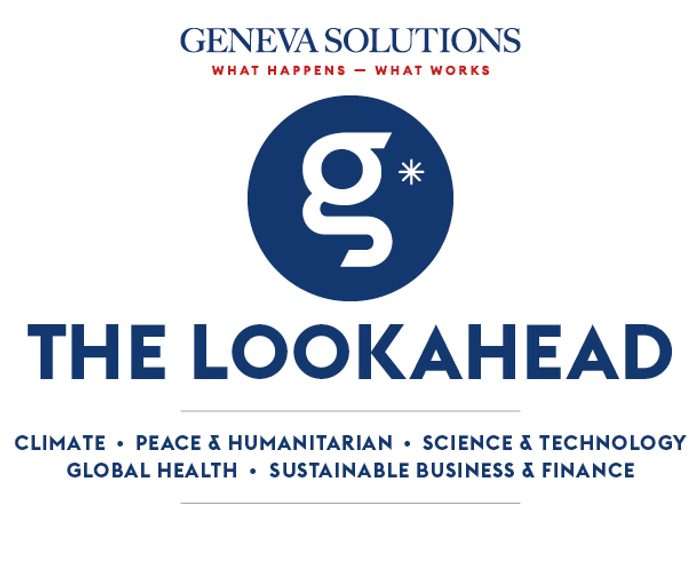Good morning, this is Michelle. The world’s plant life is vanishing faster than we can catalogue it. A new initiative to track and protect species has picked Geneva as its home.
This week, the World Trade Organization will be in a lively mood as the long-awaited fisheries deal – at least part of it – kicks in, while also swinging open its doors to the public for a rare peek inside.
On the health side, delegates press on with talks for a pathogen-sharing system so poorer nations see some returns when pharma profits from their discoveries. As Amitabha Sarkar argues below, it’s another chance to show that multilateralism built on solidarity, not on transactional diplomacy, is alive and well. |

|
|
🎣END OF THE LINE.
Today at 9 am, the WTO will hold a ceremony to celebrate the entry into force of a trade deal aimed at curbing subsidies for harmful fishing, after recently receiving the last three ratifications required for the agreement to come into effect – at least two thirds of member states needed to be on board.
Countries from all regions have signed up, including some of the world’s top subsidisers – China, the United States, the European Union, South Korea and Japan. The last three to have joined remain undisclosed.
|
|
‘Milestone’.
The agreement, much touted by WTO chief Ngozi Okonjo-Iweala, is the trade body’s first-ever deal aimed at protecting the environment.
Welcoming the announcement, Megan Jungwiwattanaporn, an officer at The Pew Charitable Trusts, said: “Once countries begin to implement the agreement, fish stocks around the world will have a chance to recover, benefitting local fishers who depend on a healthy ocean.”
Calling it a milestone, Alice Tipping, director of trade and sustainable development at the International Institute for Sustainable Development, said it is “clearly demonstrating the value of multilateralism”, while underscoring that “the focus must now shift to full implementation, robust transparency and continued negotiations to strengthen the agreement with additional disciplines.”
|
|
Ticking clock.
The countdown now begins for countries to finalise an outstanding part of the deal within four years or risk seeing the entire agreement expire as established by a sunset clause. While the first deal bans subsidies for illegal, unreported and unregulated fishing, as well as for overfished stocks, the second part would cast a wider net to rein in harmful subsidies more broadly.
But negotiations have been caught in a gridlock for the past year as a handful of countries, led by India, refuse to meet the vast majority halfway – a reminder of the dynamics that foiled negotiations for a plastics treaty last month.
|
|
🚪OPEN DOORS.
Later in the week, the WTO is holding its annual public forum, where it opens its doors to outside stakeholders to discuss the latest developments in trade.
Brazil’s Cop30 president Andre Correa is expected to present a proposal for an alternative forum to address the trade impacts of environmental protection measures, hoping to launch it during the climate summit in November.
|
|
🧫PAPS TALKS.
And speaking of pending, divisive issues, health delegates will also gather this week for talks on a system to share pathogen access in exchange for benefits from their use, which, similar to fisheries, the pandemic treaty relies on to be able to proceed.
The so-called PABS mechanism is the last remaining element of the pandemic treaty, adopted last May at the World Health Assembly. Finding that the matter was still riddled with divergences, countries decided to give themselves an extra year to find a compromise.
|
|
Terms and conditions.
As Health Policy Watch reports, developing countries will be insisting on assurances to avoid a repeat of the Covid-19 jab distribution mess.
Meanwhile, China has suggested that only companies from countries party to the agreement should be able to benefit from the tool – a move that would likely sideline US pharma.
|
|
✊HUMAN RIGHTS CORNER.
The UN’s top rights body continues with the second week of its autumn session. Among the issues to be discussed: how mercenaries are used to exploit natural resources, the north and south geopolitical divide, enforced disappearances of land rights defenders, water and energy, as well as the rights of peasants and older people. Investigations into abuses in Burundi, Belarus and Ukraine are also on the agenda for Thursday and Friday.
|
|
Behind the scenes.
Meanwhile, delegates will be busy negotiating several resolutions dealing with human rights situations in countries including Russia, Sri Lanka, Sudan and Afghanistan, as well as broader issues like the death penalty, racism, maternal mortality and development.
|
|
|
GS news is a new media project covering the world of international cooperation and development. Don’t hesitate to forward our newsletter!
Have a good day!
|

|
|
Avenue du Bouchet 2
1209 Genève
Suisse
|
|
|
|









